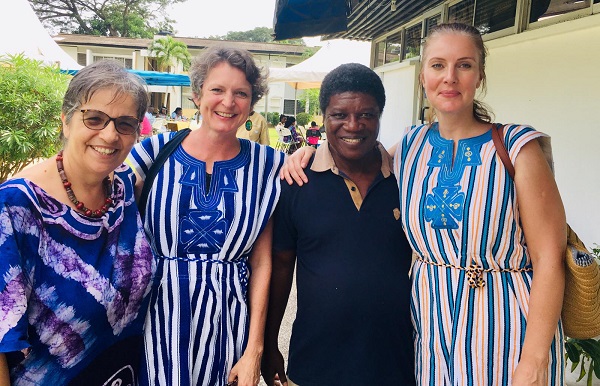
Recently, Dr Katie Edwards (University of Sheffield) and Dr Johanna Stiebert (University of Leeds), travelled to Accra to participate in a collaborative project titled ‘An Intersectional Exploration of Religion and Gender-Based Violence: A Case Study of Accra in Global Context’ funded by WUN in the 2017 round of the annual Research Development Fund. Project leader is Rev. Dr. George Ossom-Batsa, of the Department for the Study of Religions, University of Ghana.
The idea for this project grew out of the Shiloh Project, a joint initiative set up by staff from WUN-universities Sheffield, Leeds and Auckland. The Shiloh Project is committed to fostering research into the phenomenon of rape culture, both throughout history and within contemporary societies across the globe. In particular, it will investigate the complex and at times contentious relationships that exist between rape culture and religion, considering the various ways religion can both participate in and contest rape culture discourses and practices.
It will also explore the multiple social identities that invariably intersect with rape culture, including gender, sexuality, race and class.
The project is directed by Dr Caroline Blyth (University of Auckland), Dr Katie Edwards (University of Sheffield) and Dr Johanna Stiebert (University of Leeds).
The central part of Dr Edwards’ and Dr Stiebert’s visit to Accra was a day-long conference followed by a day of workshops to investigate the topic from a range of perspectives. Read the conference summary here.

Pictured: Dr. Nicoletta Gatti (University of Ghana); Professor Johanna Stiebert (University of Leeds); Rev. Dr. George Ossom-Batsa (University of Ghana), and Dr Katie Edwards (University of Sheffield)
With the funds left in the budget from WUN, the group will produce and disseminate a leaflet that: 1) defines GBV; 2) supports intervening bystanders, with a section setting out what to do and where to turn (in Accra) if you suspect someone is a victim of GBV; 3) details victim support and legal rights for those who are themselves victims of GBV; 4) contains a section that specifies the rights and services of members of the LGBT community in Ghana.
To contact the project directors, or to propose an article for the Shiloh Project blog, email shiloh@sheffield.ac.uk
Copy and photo credit: Shiloh Project blog